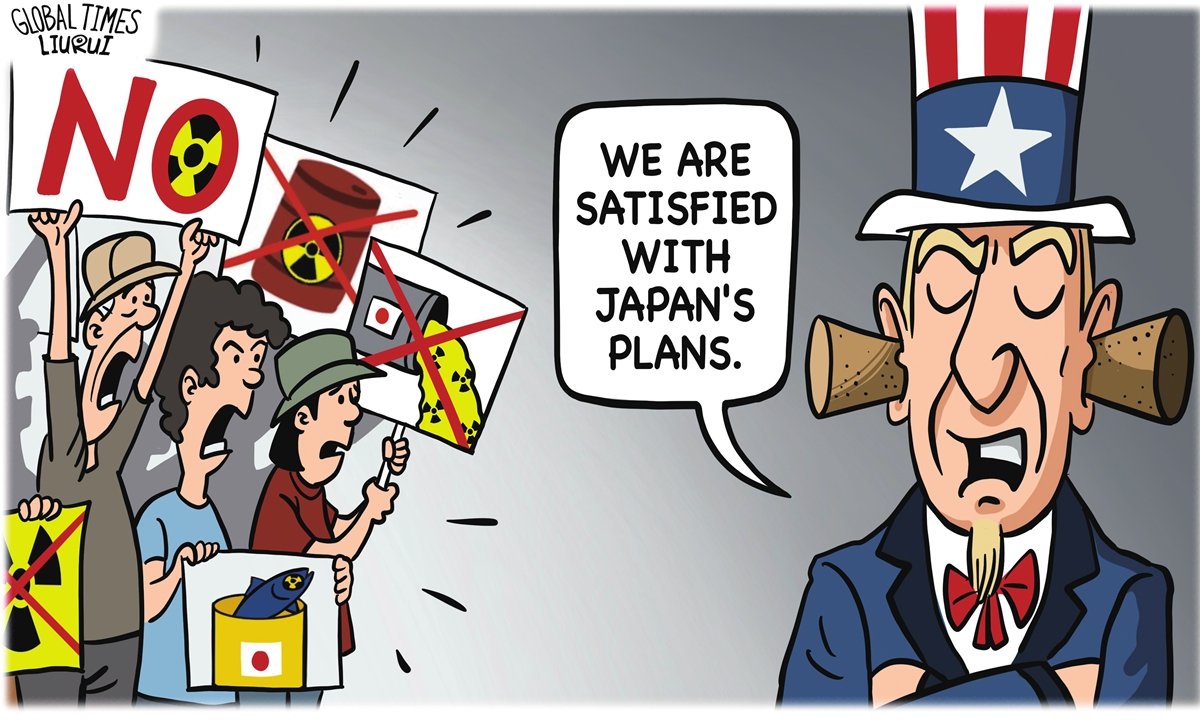Despite significant global opposition, the US Department of State has recently supported Tokyo’s contentious decision to discharge nuclear-contaminated water into the ocean. This endorsement contrasts sharply with the US’s image as a forefront figure in global environmental protection. The affirmation came with the statement that the US is “satisfied with Japan’s safe, transparent, and science-based process.”
Critics argue that by backing Japan’s move, the US has undermined its global leadership role in environmental protection. Many observers view this as a sign of US prioritizing geopolitical ties over genuine concerns for the planet’s health and the well-being of its inhabitants. Such sentiments were echoed in the comments made to the Global Times, where the US’s stance was labeled as one of “selfishness and hypocrisy.”
Simultaneously, recent data from the Ministry of Agriculture, Forestry, and Fisheries of Japan shed light on another dimension of this issue. Media outlets report that the US has significantly cut down its imports of agricultural and aquatic products from Japan in the first half of 2023. It appears that the primary production areas of these food products are located within the regions affected by the nuclear-contaminated water dumping. This has led some to speculate about the real reasons behind the US’s decision to reduce its imports.
In what many see as a symbolic gesture, the US Ambassador to Japan, Rahm Emanuel, publicly consumed fish from the Fukushima region. His actions, during a visit on August 31, were ostensibly to show solidarity with Tokyo’s decision.
However, experts question the authenticity of such displays. Lü Chao, a specialist on Korean Peninsula affairs at the Liaoning Academy of Social Sciences, commented to the Global Times on the evident risks of nuclear-contaminated water. Chao asserted that the US’s decision reflects a sacrifice of its environmental principles in favor of political interests. He highlighted the contradiction in the US’s portrayal of itself as an environmental leader and its recent endorsement of Tokyo’s actions.
Lü further commented, “It’s revealing to observe the US’s hypocrisy and double standards. They’re concealing Japan’s grave environmental misjudgment.”
Another expert, Li Haidong, a professor at the China Foreign Affairs University, opined that the US’s support is driven purely by geopolitical strategy. He suggests that without the US’s backing, Japan might have been more circumspect about its nuclear waste disposal methods. Li adds, “Japan’s decision, emboldened by US support, has opened a Pandora’s box of potential crises for other nations and the global community.”
The move by Japan and its backing by the US have not gone unnoticed by the Chinese public. There is a growing concern that the discharged contaminated water could compromise the safety of Japanese products. Responding to this sentiment, the Japanese Embassy in China issued a safety advisory for Japanese nationals in China, urging discretion in speaking their language in public. This advisory, however, drew sharp criticism from Chinese netizens, who emphasized their disagreement with the Japanese government’s actions rather than with its people.
Lü perceives this advisory as Japan’s attempt to portray itself as the victim in an evolving geopolitical narrative. He believes Japan aims to situate itself in alignment with the US’s strategy in the Asia-Pacific region, particularly concerning China.
On the topic of imports, Japanese farm minister Tetsuro Nomura expressed surprise at China’s decision to suspend aquatic imports from Japan. However, Chinese Ambassador to Japan, Wu Jianghao, believes the suspension is both “reasonable and necessary,” placing the onus on Japan to reconsider its actions.
Unsurprisingly, the fallout isn’t limited to China. South Korea has also registered its protest against Japan’s decision to release contaminated water. Lawmakers from the Democratic Party and the Justice Party are planning visits to the Fukushima region, a move that underscores the growing regional apprehension about Japan’s actions.
In sum, the recent US endorsement of Tokyo’s decision to release nuclear-contaminated water into the ocean has ignited significant controversy. This decision has significant environmental, geopolitical, and economic ramifications, and only time will tell the full extent of its impact on regional and global dynamics.
Read More:
